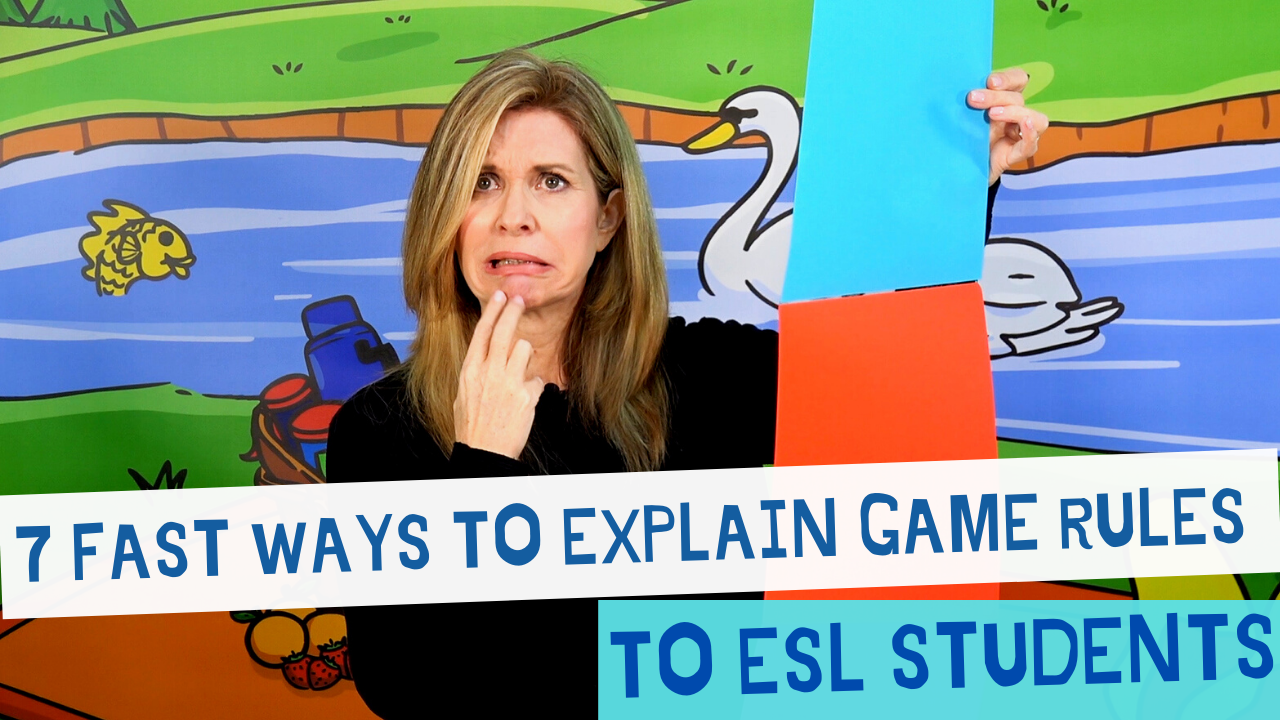7 Ways To Quickly Explain Game Rules to ESL Students

7 Ways To Quickly Explain Game Rules to ESL Students
If you’ve been following Kids English Theatre for a while, then you know we love to use games during our lessons. They’re active, help with focus, release excess energy, and help students learn English along the way. Children adore games and are more receptive to learning through them. That said, finding a new game for your lesson can be complicated at times. To find the perfect games to incorporate in your ESL lessons, stick to these rules!
Rule #1- Quick to Teach, Simple to Play
The most important thing to remember when choosing a game is to choose one that’s quick to teach and simple to play. If you end up explaining too many rules for too long your students will get bored, and you will have lost them before you even finished explaining the game. You can maintain their attention much better if what you have to explain only takes 30 seconds to a minute.
Rule #2- Keep General Rules to a Maximum of Three
To avoid overloading your students with too many rules, keep it to a game that has 3-4 rules at the maximum. That is more than enough to get an activity started. If you find it’s still too easy, you can always add rules later, but for the beginning, three is a magic number for rules.
Rule #3- Explain Rules Using Simple Language
Use simple, short words that you are confident your students will understand. Long, complicated phrases might confuse them and it’ll get in the way of actually playing the game. You’ll spend too much time re-explaining rather than playing!
Rule #4- Be Theatrical!
There’s a reason this is the Kids English Theatre motto. It is vital in communicating with your students. Let actions, tone, strong inflections, and facial expressions accompany your words. It will help your students understand you better and help them pay attention. You’ll find that they will totally mirror your enthusiasm if you are the one coming in with high energy.
Rule #5- Test Drive the Game
This is a great tip if your game involves splitting up into team and scoring points. Once you’ve split up your students, run a test round to see that they understand the rules. Then you can play the game for real!
Rule #6- Use Keywords in their Native Language
If there’s some confusion about the game, use some words in their native language to explain the game. Don’t stress out over having to use English for the instructions. You want to dive into the game as quickly as you can. Playing the game is much more important for their learning, so the faster you get to it, the better.
Rule #7- Play Along With Your Students!
Your enthusiasm and involvement is crucial to having the students get involved as well. When they see you play along, they will magically just start doing it with you. If you’re having fun, they wil have fun as well.
For more ideas on how to teach English through drama, download the free e-book, Teach Children English Through Drama.
Visit the Kids English Theatre Youtube Channel for more drama games, language exercises, puppetting demos, and other fun ideas to make your lessons fun and unforgettable.
Be Theatrical!



